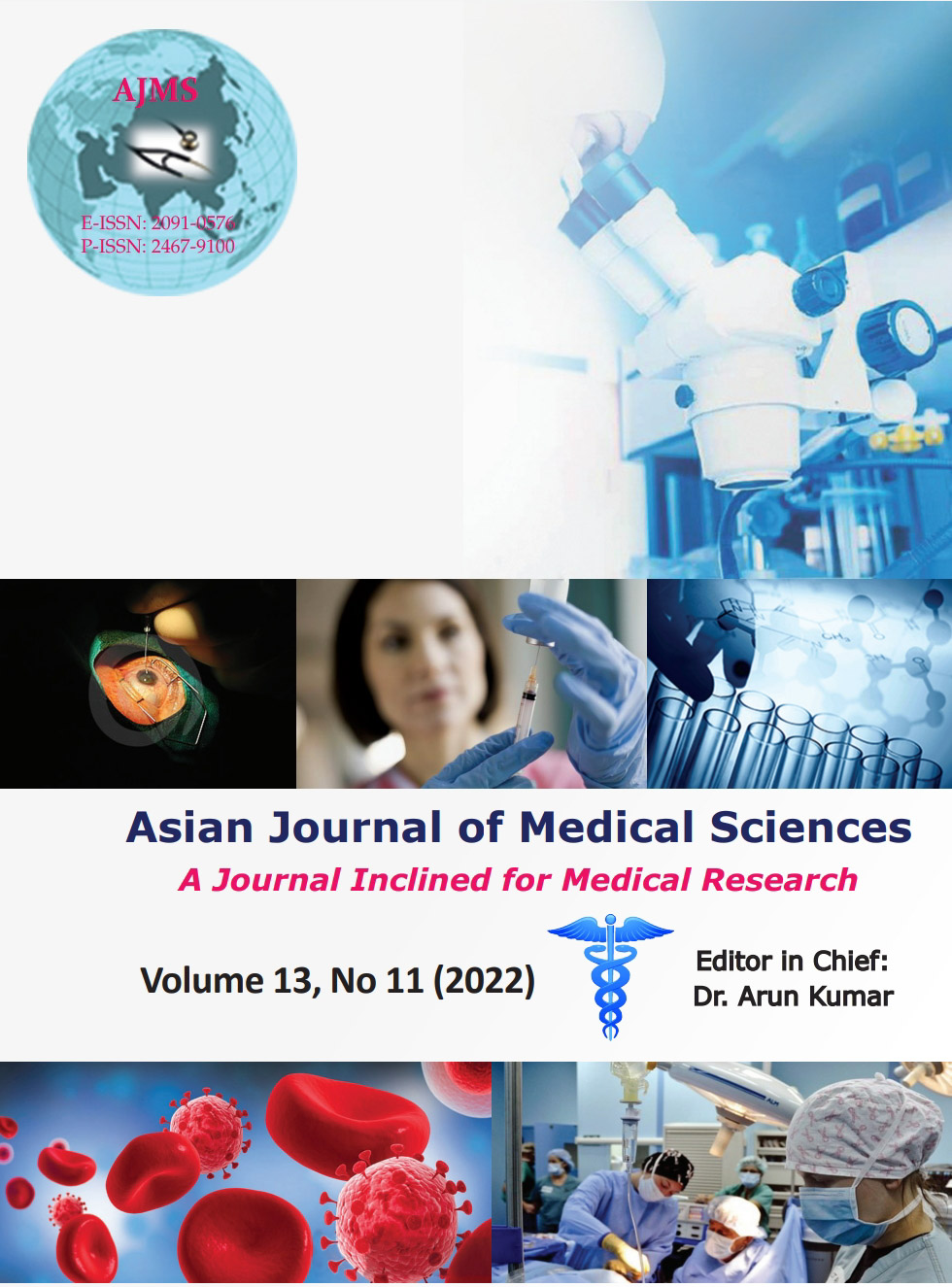Serum level of hepcidin in chronic kidney disease - A hospital-based study from South India
Keywords:
Chronic kidney disease; Hepcidin; Anemia; Blood serumAbstract
Background: The term “chronic kidney disease (CKD)” refers to a variety of pathophysiologic conditions characterized by impaired kidney function and a steady fall in glomerular filtration rate. CKD is a slowly progressive silent epidemic that affects approximately 12% of the world population.
Aims and Objectives: The aim of the study was to estimate the level of serum Hepcidin in patients with CKD compared to healthy controls.
Materials and Methods: Hundred subjects both male and female over the age of 18 were included in the study and informed consent was obtained from each of them. The study population was divided equally into two groups. Blood serum was collected to estimate level of hepcidin, urea, creatinine, ferritin, iron, total iron binding capacity, hs C-reactive protein (CRP), and total proteins. Urine was collected in a sterile container for urine protein creatinine ratio.
Results: Hepcidin could be a prognostic marker in the clinical outcome of CKD especially in the progression of CKD. There was a highly significant positive correlation of serum Hepcidin with hsCRP, ferritin, creatinine, urea, urine protein creatinine ratio, and erythrocyte sedimentation rate. Significant negative correlation of serum Hepcidin with Creatinine Clearance, Iron, TIBC, Transferrin saturation, Hemoglobin, and Total Proteins had been observed.
Conclusion: The current study showed that patients with CKD and anemia have considerably higher serum hepcidin concentrations. The level of hepcidin increases as disease progresses in CKD patients. Hepcidin, mediator of anemia in CKD is the potential target to treat anemia in them to prevent death due to cardiovascular complications and improve their quality of life.
Downloads
Downloads
Published
How to Cite
Issue
Section
License
Copyright (c) 2022 Asian Journal of Medical Sciences

This work is licensed under a Creative Commons Attribution-NonCommercial 4.0 International License.
Authors who publish with this journal agree to the following terms:
- The journal holds copyright and publishes the work under a Creative Commons CC-BY-NC license that permits use, distribution and reprduction in any medium, provided the original work is properly cited and is not used for commercial purposes. The journal should be recognised as the original publisher of this work.
- Authors are able to enter into separate, additional contractual arrangements for the non-exclusive distribution of the journal's published version of the work (e.g., post it to an institutional repository or publish it in a book), with an acknowledgement of its initial publication in this journal.
- Authors are permitted and encouraged to post their work online (e.g., in institutional repositories or on their website) prior to and during the submission process, as it can lead to productive exchanges, as well as earlier and greater citation of published work (See The Effect of Open Access).




